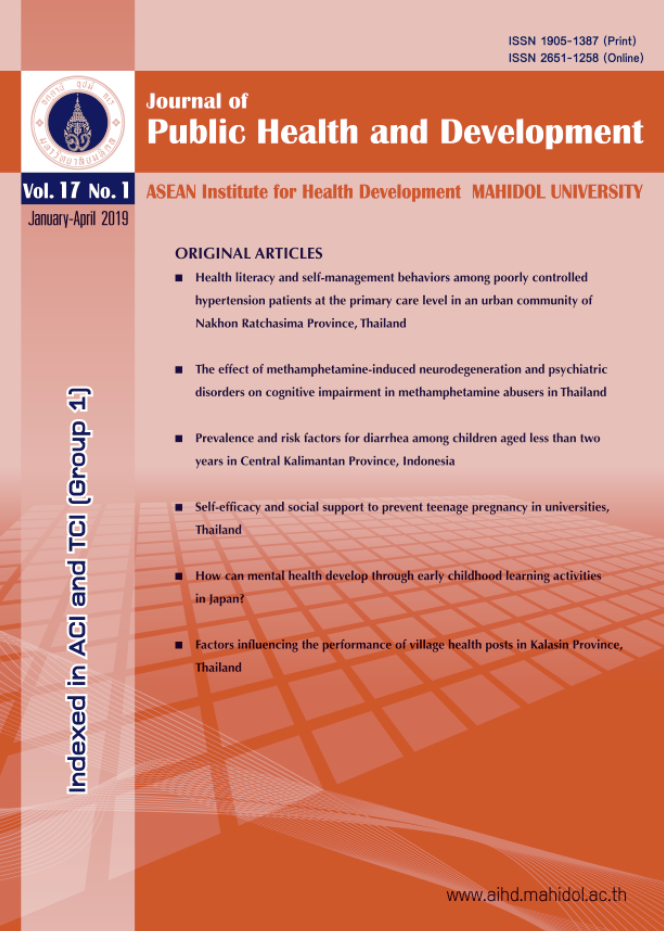Health literacy and self-management behaviors among poorly controlled hypertension patients at the primary care level in an urban community of Nakhon Ratchasima Province, Thailand
Main Article Content
Abstract
Understanding the associated factors of self-management behaviors (SMBs) allows appropriate strategies to promote good SMBs to be formulated. This study aimed at exploring health literacy and other factors associated with SMBs among poorly controlled HT patients at the primary care level in an urban community of Nakhon Ratchasima Province, Thailand. A cross-sectional study was conducted from July to October 2017. The respondents were 122 poorly controlled HT patients, and the data were collected from face-toface interviews. The data analysis was conducted using descriptive statistics, Chi-square tests, and multiple logistic regression with a significance level of 0.05.
The results revealed that 60.8% reported adequate SMBs. Of those, more than two-thirds had the following characteristics: female, elderly, living alone, and low education. Age group (p = 0.047) and drinking history (p = 0.030) were significantly associated with SMBs. Elderly patients were 3.77 times more likely to engage in adequate SMBs than younger ones (95%CI=1.44-9.88). Likewise, nondrinkers were 3.96 times more likely to have adequate SMBs than drinkers (95% CI=1.30-12.02). Poorly controlled HT patients who got a higher one score of a self-observation were 1.81 times more likely to enact adequate SMBs (95% CI = 1.06-3.12).
In conclusion, older age, nondrinking status, and higher self-observation scores were predictors of adequate SMB among poorly controlled HT patients in an urban community. Promoting good SMB by enacting in self-care for poorly controlled HT, especially for drinkers and those aged under 60 years is essential.


